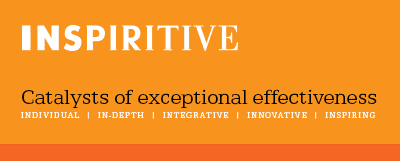Reflective Clinical Supervision Training for FDR Practitioners and Mediators
Clinical Supervision Training for Dispute Resolution Practitioners. Designed for experienced Family Dispute Resolution Practitioners (FDRPs) and AMDRAS Accredited Mediators who want to guide, mentor, and support other practitioners with clarity, ethics, and wellbeing in mind.
Built around Mediation Institute’s Tripod Model of Reflective Clinical Supervision: Learning, Accountability, and Wellbeing.
Advance your skills. Gain recognition. Build confidence as a Reflective Supervisor.

Course overview

Delivered in partnership with Inspiritive (RTO 21178).
The Tripod Model of Reflective Clinical Supervision
Mediation Institute’s Tripod Model integrates reflective and clinical supervision principles to support safe, ethical, and sustainable practice.
Learning
Build the supervisee’s knowledge, insight, and capability through structured reflection and skill development.
Accountability
Uphold ethical and professional standards, support quality assurance, and strengthen consistent decision making.
Wellbeing
Support reflective resilience, practitioner safety, and sustainable professional practice over time.
Course components
The program is delivered as a blended learning experience combining self-paced study, live interactive learning, and applied workplace or volunteer-based practice.
- Self-paced eLearning modules introducing supervision theory and the Tripod Model
- Live online Supervision Circles for collaborative learning and skill application
- Coaching Clinics for practice, reflection, and personalised feedback
- Applied practice with a supervision evidence portfolio
- Statement of Attainment issued on successful completion

This course is ideal for
- AMDRAS Accredited Mediators who want to expand into supervision roles
- Family Dispute Resolution Practitioners seeking reflective supervision skills
- Existing supervisors looking for competence-based certification and deeper skills recognition
- Practitioners supporting the growth of the profession by mentoring the next generation
Prior experience is required. If you are unsure whether this is suitable for your background, request a callback.
Professional outcomes
Develop the skills, knowledge, and confidence to balance Learning, Accountability and Wellbeing in supervision.
- Confident, reflective supervision
- Safe, consistent debriefing
- Higher professional standards
- Statement of Attainment: CHCMGT005 – Facilitate workplace debriefing and support processes
Fees and next steps
Course fee
- Payment plans available
- Includes the Statement of Attainment pathway
- Fully online delivery
Mi Member price
- 10% discount for Mi Members
- Ideal for practitioners building an ongoing professional pathway
- Access to professional development and support services via MiMembers
Corporate clients
Cohort training is available for groups of six or more suitable learners. A 10% discount applies for cohort groups.
Pathway and recognition
- AMDRAS Advanced Mediator Accreditation (where applicable to your pathway)
- Reflective Clinical Supervisor recognition within mediation and FDR sectors
- Leadership and mentoring roles within dispute resolution and community organisations
Learn more
Watch a recording of our information session on reflective supervision and the Tripod Method.
When will the course start?
The next course starts in early 2026, with regular group sessions scheduled from February 2026 onwards.
How long do I have to complete it?
You have six months access to online materials from the date you enrol and can attend scheduled live sessions within that period. If working toward the Statement of Attainment, you will also provide applied evidence during enrolment.
Learning outcomes
- Facilitate structured workplace debriefing and support processes
- Apply a reflective supervision framework prioritising safety, ethics, and clarity
- Distinguish the Supervisor (clinical) role from the Team Leader (management) role
- Build strong supervisory relationships and maintain professional boundaries
- Recognise signs of stress, burnout, and risk — and make referrals when needed
- Give effective, evidence-based feedback that lifts practice standards
- Use effective supervision and debriefing models appropriately
Frequently Asked Questions
Is prior mediation experience required?
What is the delivery format?
Do I receive a qualification?
How do I register interest?
Ready to expand into supervision?
Submit an Expression of Interest to be contacted about the next cohort, eligibility, and enrolment steps.
